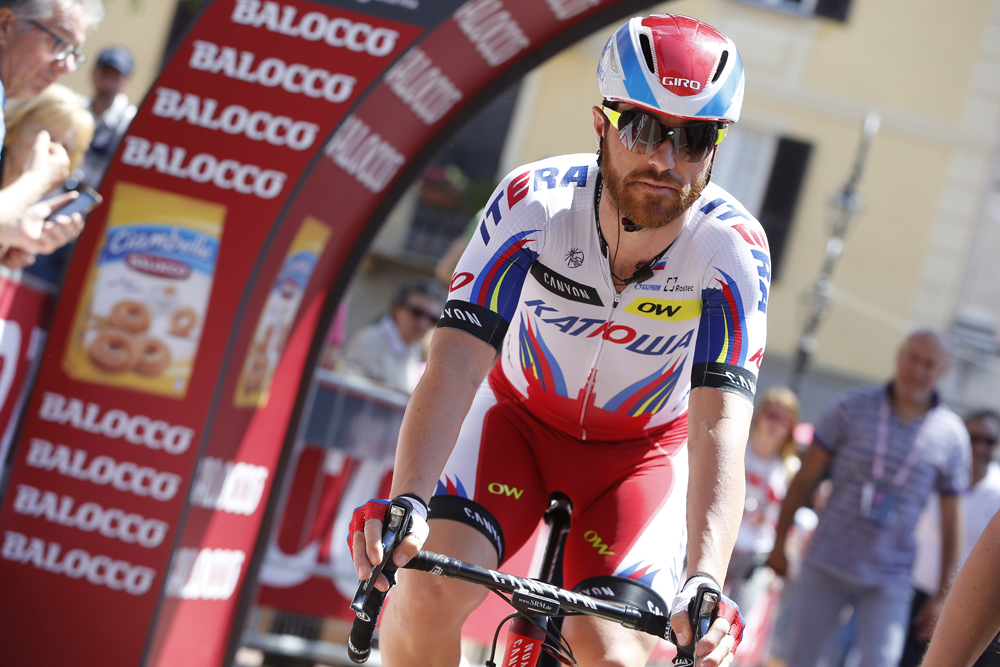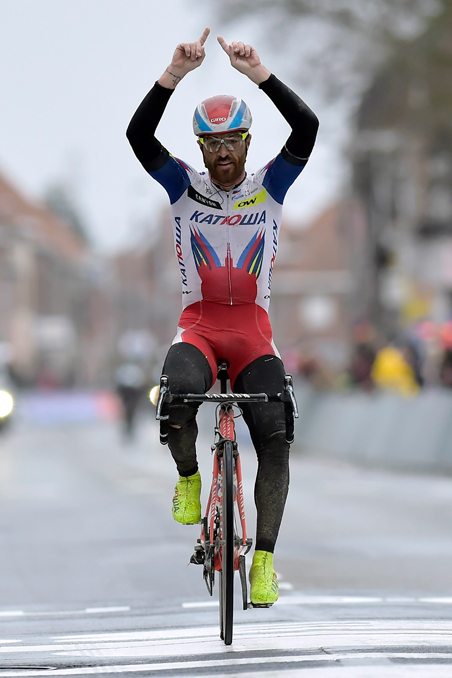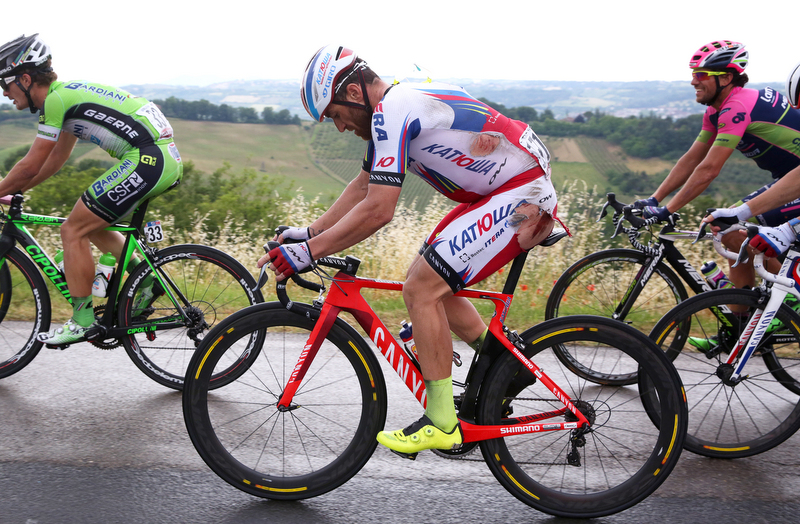Paolini informed of cocaine positive at Tour de France
Katusha rider provisionally suspended by UCI





Katusha rider Luca Paolini has been informed that he has tested positive for cocaine while racing at the Tour de France. The winner of Gent-Wevelgem this year has been provisionally suspended by the UCI and will be excluded from the Tour.
It is the first doping positive at the Tour de France since Fränk Schleck tested positive for a banned diuretic in 2012.
The UCI announced on Friday that it "notified Italian rider Luca Paolini of an Adverse Analytical Finding of Cocaine (Benzoylecgonine metabolite) in a sample collected in the scope of an in-competition control on 7 July 2015 during the Tour de France."
July 7 was stage 4 of the Tour de France, the 223.5km stage from Seraing to Cambrai over seven sectors of pavé. Paolini finished 172nd in a group that was almost 17 minutes behind stage winner Tony Martin.
Paolini can contest the result and request his B sample be analysed, but cannot continue in the race.
Cocaine is banned in-competition, but not outside of competition, and while the possibility exists that Paolini's exposure to the drug dates from before the Tour de France - the metabolite can remain in the system anywhere for as long as four to 10 days after cocaine is consumed - the anti-doping rules are clear: the date of the sample collection determines whether the positive was in- or out-of-competition.
The Katusha team confirmed that it has withdrawn Paolini from the Tour de France. "In application of the Team policy the rider has been immediately withdrawn from the Tour de France," a press release stated.
The latest race content, interviews, features, reviews and expert buying guides, direct to your inbox!
"Bearing in mind the anti doping regulations, the team will wait until the analysis of the B sample has been conducted before taking any further action or making any further comment.
"Team Katusha is fully determined to collaborate with the anti-doping agencies in order to resolve the matter."
Should the B-sample analysis confirm the positive, the 38-year-old faces a possible four-year ban, as cocaine is a non-specified substance under the WADA code, unless he can prove that the anti-doping rule violation was unintentional.
